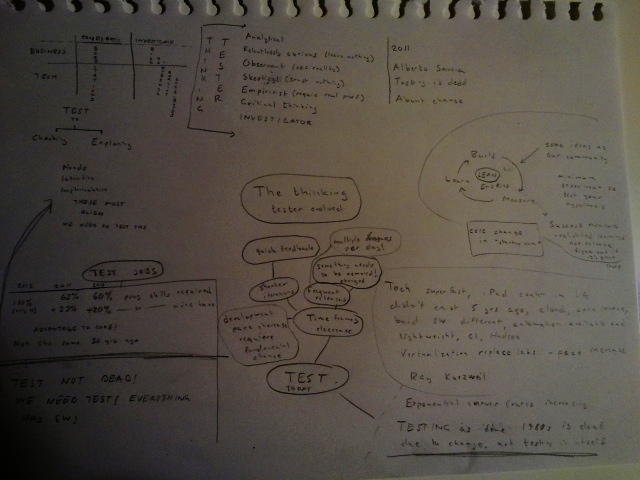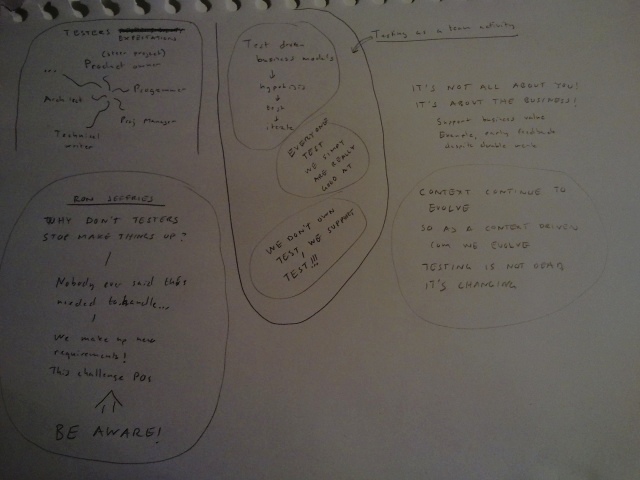First a few general realizations:
- It was fun!
- It was easier than I thought! I don't know if this was because it was fun, due to the specific topic or some other reason but I guess time will tell.
- It felt efficient! I have a hard time imagining it would be possible for me to learn as much in the same amount of time by reading (for this topic I should add).
- Just like reading makes you practice other skills, like focus, this was an efficient way to practice several other useful skills for instance:
- Observation
Both during and after I observed everything I did in a conscious way. - Reflection
From the observations I draw conclusions and tried to figure out what I could learn from these conclusions. - Focus/Discipline
This was, for me, a much more powerful way of practicing focus than reading. - Listening
In this particular practice I soon noticed my way of listening to what Elisabeth actually said got better and better leading me to believe this could be a powerful way of practicing listening as well. - I feel motivated to do it again!
So what did I learn about my way of taking notes (the quick version):
- I'm not bad at taking notes when I really try, my problem is rather that I don't try
- I tend to structurally close sections (for instance adding borders) before they are really finished adding some interruption in flow when I have to fix this.
- I change style when I mentally change section. That's actually quite useful since it makes different parts easier to distinguish. Compared to my borders above it's much easier to come back to sections when style, rather than boxes, differentiate them.
- I like to headline my sections, sometimes that becomes counterproductive, for example I sometimes make up headlines before I really understand what a section is about making my final result confusing.
- In the beginning I wrote down stuff as I heard them, the more into the note taking I got the more I listened to a whole section before adding notes, this made the notes more relevant but sometimes I missed out on details. In most cases I would prioritize relevance, but I have to be aware it's not always the best choice.
- I organize my notes on paper as I organize the information in my head. I have a hard time writing down my notes in a more "reading structured way". This could sometimes be useful (I believe) so trying a similar practice with a more "live blogging" approach would be very interesting. Also, this could be an area where reading would be really helpful. I've not read so much of Markus Gärtner's work yet but I've understood from comments he's the king of live blogging so that could be one place to start...
- I believe some parts could have been better represented with visualizations. This is definitely an area to improve, maybe by doing a similar practice with just different constraints.


... and by the way, right now retelling key points next week seems really within reach...





